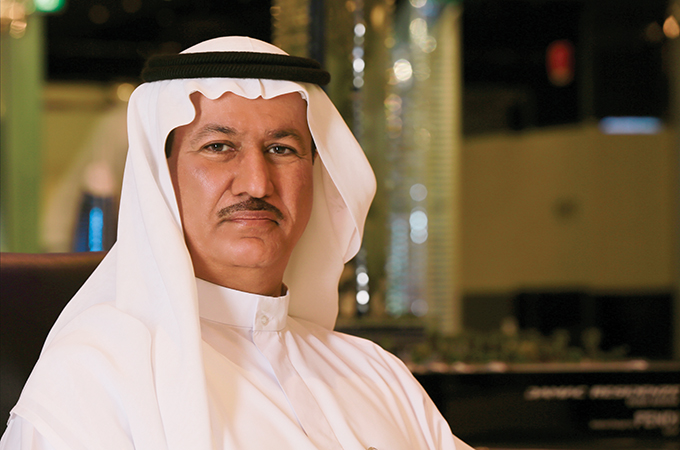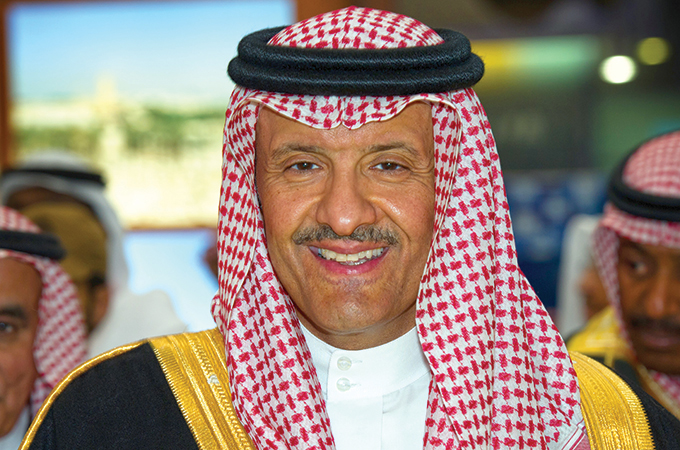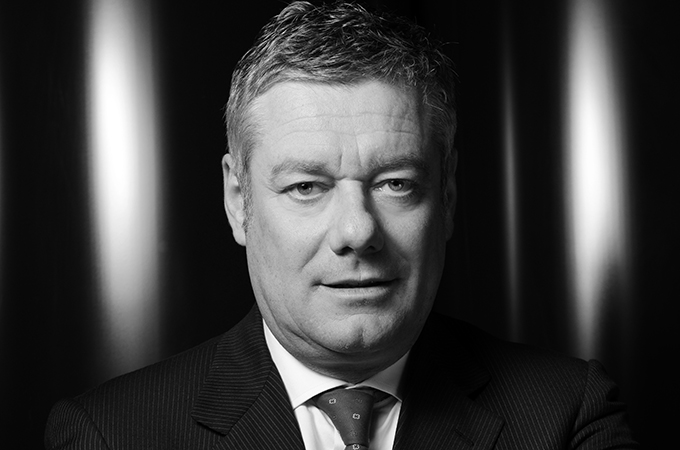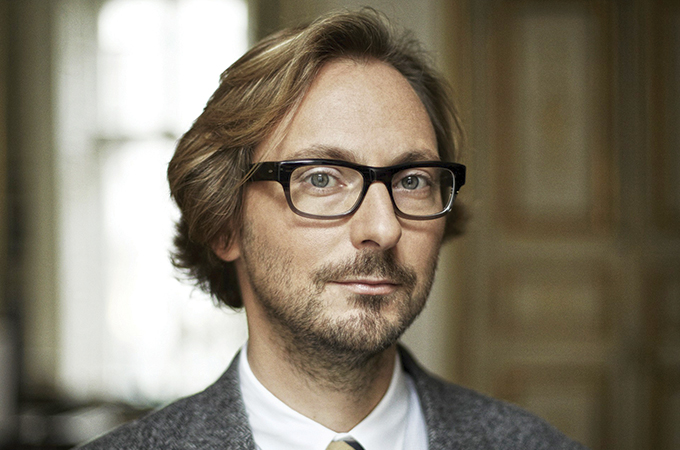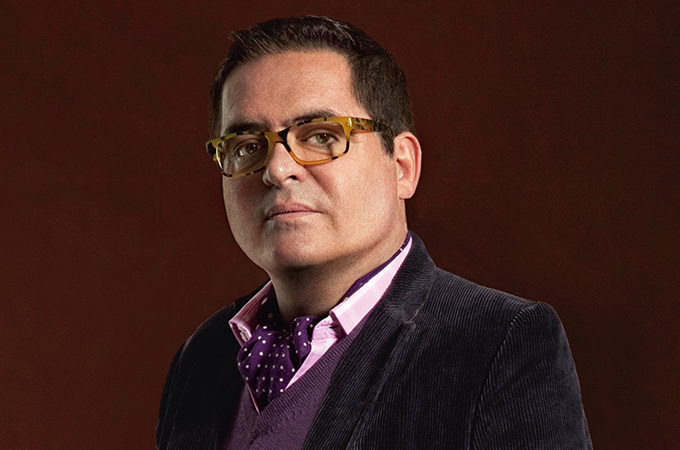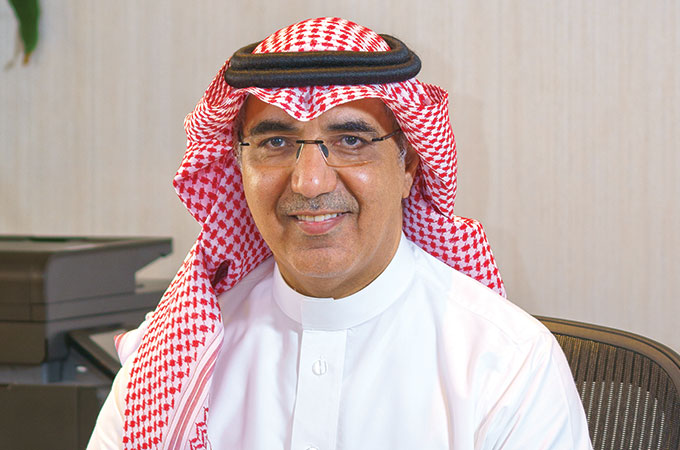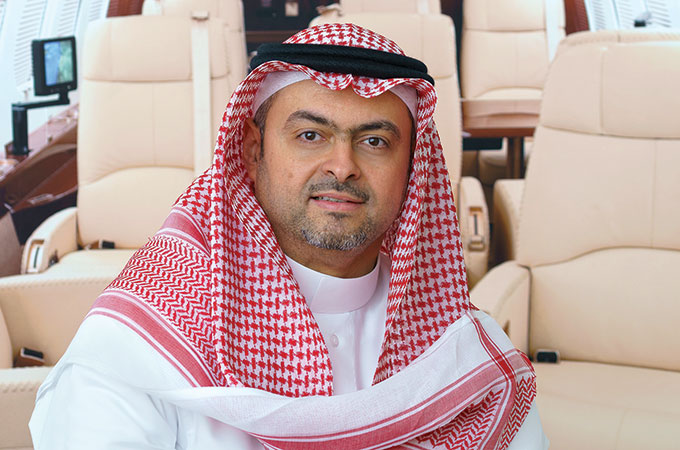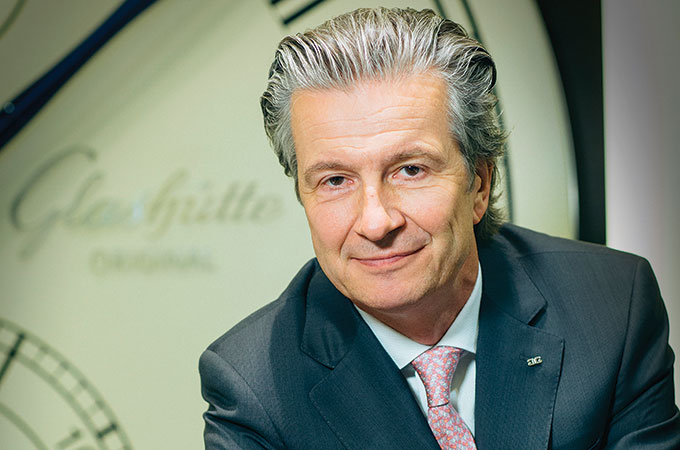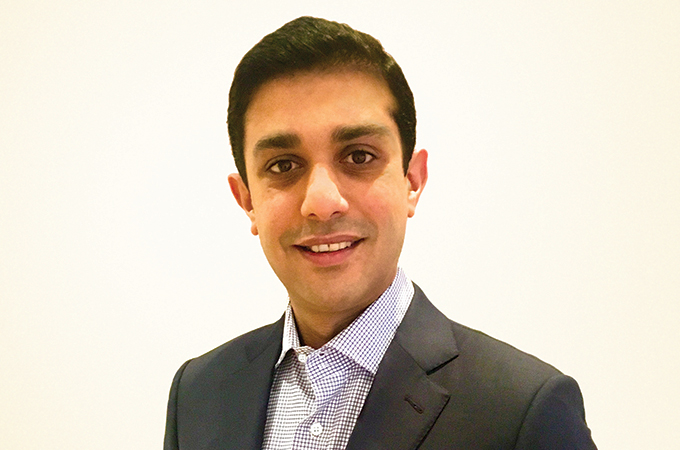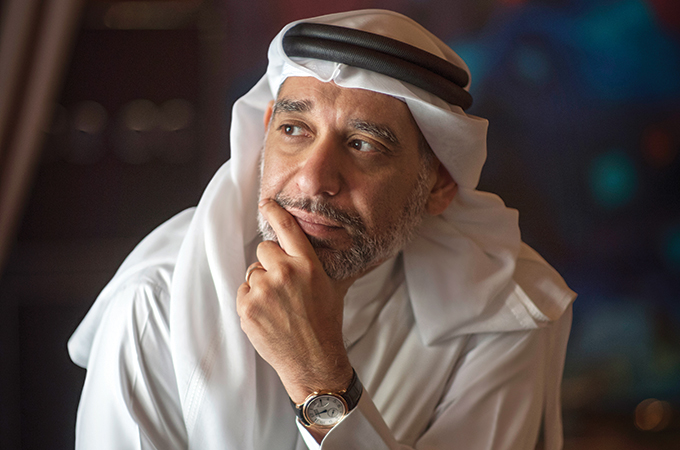Summer 2016
High-flying Saudi entrepreneur and philanthropist Sheikh Mohammed Al Rahbani lives life to the fullest while growing the family’s business empire in the region and overseas
For most individuals, there is a sanctuary. A place to call on cherished memories, to unwind in the present or seek inspiration for the future.
For Sheikh Mohammed Al Rahbani – captain of industry, progressive thinker, philanthropist, lover of fast cars and nature and family man – that place is Gstaad, the glamorous Swiss resort as famous for its royal visitors and celebrity lifestyle as for its movie set vistas.
“It’s my favourite place in the world,” Sheikh Mohammed tells Arabian Knight. Indeed, he loves the town so much that he owns a chalet just a stone’s throw from the iconic Palace Hotel, the grand old dame of Swiss sophistication, fashion and finesse. The chalet offers its own exclusive million-dollar views of this highly picturesque Alpine landscape.
And yet it is in the lounge of his six-storey residence in London’s well-heeled Knightsbridge district that we meet this charming, urbane, gracious but discreet knight, as he seamlessly discusses the many kaleidoscopic threads which make up his rich and varied life.
Jeddah-born and proudly Saudi with deep-rooted family and business ties to the Kingdom, it is the outdoor life, natural beauty and happy memories of Switzerland that run in Sheikh Mohammed’s blood. His family began frequenting Gstaad in the 1970s, and as a teenager he was educated first at the prestigious College du Leman preparatory school and then the International School in Geneva.
“After that I was a man,” he says simply, before explaining why his 40-year love affair with the European country endures. “The scenery is unreal. Looking from my chalet at the mountains is like watching a show about to start. It’s the perfect place to rewind, reflect and think. And my children love it too.”
HIGH PROFILE LIFE
For this dynamic yet often media-shy entrepreneur at the helm of a multi-billion-dollar family empire established by his visionary father, the late Sheikh Haleem Faris Al Rahbani, life has, at times, resembled something of a movie set with Sheikh Mohammed and his father playing roles among a glittering cast of royalty, politicians and celebrities.
He warmly recalls an official visit undertaken by the Al Rahbani family to Belgium in 1986 at the invitation of the then King Baudouin, where his father received an award for his services to industry. The sense of occasion and ceremony left a lasting impression on the teenage Mohammed, who was studying in Geneva at the time.
“We drove all the way from Geneva to Brussels to accept the honour,” he remembers. “When we arrived in the city we were treated like royalty. All the family were with us – my mother, aunt, brother-in-law, sisters – as we took a police escort through the streets of Brussels. It was a special moment.”
BEAUTIFUL CHILDHOOD
The years in Switzerland followed what father-of-three Sheikh Mohammed describes fondly as a “beautiful” childhood in Jeddah. Life, typically, revolved heavily around the family, and it was not uncommon for him to accompany Sheikh Haleem on business trips around the world. He was also inspired by the work of his mother, who in the late 1970s initiated a programme, which continues to this day, to feed the less fortunate people in Jeddah.
“Every Friday she ran a programme delivering food to those less fortunate in the city, including widows who, due to social restrictions at the time, were unable to work and support their families financially,” he explains. “There would be a 10-kg bag of rice, a bag of sugar, wheat, a box of pasta and 4 kg of meat. We could sustain a whole family for a week with that, and it would make my mother feel so good.”
Time spent travelling with his father also provided a unique bonding opportunity, and for the young Mohammed, one of four children, the chance to acquire the same sharp business acumen which had enabled his father to become a leading light in Jeddah’s social and community circles, as well as the founder of one of Saudi Arabia’s most successful and diversified family businesses.
“I’m very proud of what my father has done for our city,” he says. Sheikh Haleem built Jeddah’s first hospital for women and children, the Maternity and Children’s Hospital, which remains a well-known city landmark.
“His initials HFR were inscribed on the side of the hospital in big letters,” Sheikh Mohammed says, smiling. “He was so proud of it. Then the Ministry of Health, which at the time was run by King Fahd, acquired the premises. It still operates today and my business associates confirm that it remains very busy!”
BUSINESS BONDS
The ties which would bind father and son in a formidable partnership were not always so clear cut. While Mohammed had always looked up in awe to the man who had built a business empire through shrewd investments in emerging sectors such as real estate and manufacturing, he concedes he had different dreams as a teenager.
“I actually wanted to be a doctor, and then later a diplomat. At King Saud University in Riyadh I studied Political Science and Public Administration with a view to entering Saudi Arabia’s diplomatic corps. My father’s business seemed so overwhelming, so big, and I never imagined how I’d ever end up understanding it.
“He pushed me hard and that’s why I think in the early days I was reluctant to join the family business. He would include me in every meeting, and there was a lot of pressure,” he explains.
Sheikh Haleem’s powers of persuasion were, however, eventually rewarded such that by the age of 20, Mohammed was a fixture in the family business, initially with Rahbani Group Limited (RGL), an oil and gas firm that was involved in Angola. Since then, he says he has grown to love the challenge and responsibility, and his career decision appears to have been overwhelmingly vindicated – he now oversees an empire actively involved in manufacturing and real estate, with a vast amount of overall assets in Saudi Arabia and overseas and involvement in some of the Kingdom’s biggest infrastructure projects.
He is the Chairman of Riyadh-based Safid, founded as a joint venture with Finland’s Nokia in 1979 and one of the GCC’s leading providers of engineered air solutions with operations in Qatar, the UAE and Kuwait.
His portfolio of privately held interests include healthcare and industry, and he is responsible for a strategy of selective development opportunities to enhance the value of the Rahbani family landholdings in the Middle East and Europe worth more than $1 billion.
That includes a massive plot of undeveloped land in the Wafra area of Kuwait in what used to be the Neutral Zone shared with Saudi Arabia, chalet developments on the Red Sea in Jeddah, and sites in Riyadh and the Eastern Province.
VISIONARY VENTURES
Sheikh Mohammed’s passion is palpable as he describes the group’s latest business ventures. Last year, he signed an agreement with San Diego-based Genomics Pathway which could revolutionise preventative healthcare in Saudi Arabia by providing new solutions for genetic testing and drug response.
“Imagine, instead of being struck by diabetes in 20 years you can raise the flag now, and initiate changes to lifestyle and diet. I love the concept and wanted to bring it into the Kingdom. It’s simple – one saliva sample can generate a 50-page report detailing the food you eat, the drugs you take. My family did it, and I think it has huge potential to help families in the Kingdom, even if the government is still not warm to the idea yet.
“Our intention is to move the laboratory from the US to Saudi Arabia with the intention of testing five per cent of the Kingdom’s population every year. It has the potential to save the government billions of dollars in treating preventable disease, but it is not cheap – we’d need government help.”
He is also excited about the AED1 billion ($272 million) United Iron & Steel joint venture in Abu Dhabi. As the project’s Chairman and a majority shareholder, Sheikh Mohammed hopes trial production could start in October 2016, eventually making 500,000 tonnes per year of high quality steel which Safid currently sources from Japan and Saudi Arabia.
As these new ventures progress and the Al Rahbani business horizons expand, Sheikh Mohammed is aware of the importance of exposing his children Fahad, 18, Norah, 16 and Sultan, 14, to not only the group’s business life but also his philanthropic interests.
“I want my children to become part of the business, and I’m exposing Fahad in particular when necessary because that’s the best school of life! But I’m trying not to put too much pressure on them like my father did with me. Instead, I’m trying to teach them to be humble, to help and respect people, to help them understand that you are not defined by wealth, and that you have to work hard for your rewards.”
This process appears to be already happening. As we sit in the comfortable and contemporary lounge of his residence, overlooking a leafy central London square, Sheikh Mohammed’s American wife Kate, his sons Fahad and Sultan, and his teenage nephew all make a friendly appearance during the interview. It is a domestic scene played out in any household anywhere in the world, and underlines the humility and hospitality by which the billionaire Al Rahbanis live their daily lives.
STRIVING FOR CHANGE
Our knight believes that as an influential Saudi businessman, he also has an obligation to promote hard work and humility to wider society.
“There is a growing realisation in the Kingdom that if you work hard to earn your money rather than sitting at home doing nothing and expecting the government to feed you, you will achieve a good status in society. There are quite a lot of people like me in the Kingdom who think like that, who are open minded, striving for positive change but who do not want the country to lose its cultural identity.”
There appears to be little danger of a staunchly patriotic Sheikh Mohammed, who divides his time between the Kingdom as well as London and Switzerland, losing touch with his Saudi roots.
An unshakeable belief in his country’s future means that, as other investors waver in uncertain markets, he is doing the exact opposite.
“Usually when one bullet is fired in the Gulf region oil shoots up,” says Sheikh Mohammed. “But today there’s a war and oil is still down. While that is unusual, I totally believe in our country, the leadership and the system and its long-term future.”
He is arguably better placed than most to offer an opinion on regional politics. He has met current US president Barack Obama on several occasions, and a photo of one of those occasions takes pride of place on the coffee table. He admits that while his first impressions of Obama were positive, the president’s disengagement from the region has been a “major letdown”.
“First meeting him as the head of the world’s only superpower he was so impressive, with stirring speeches in Turkey and Cairo outlining his vision for the region. But he has since completely withdrawn from Saudi Arabia and his GCC allies,” says Sheikh Mohammed, whose wife is from the US state of New Hampshire and whose father was a Vice President of Boston University.
On the other hand, Sheikh Mohammed thinks that negative international perceptions of Saudi Arabia must be challenged.
“I feel it is my duty to defend my home, because to me my country is like a mother who will take care of you whenever you go there. This feeling is so important. You have to look after your mother.”
PHILANTHROPY
Sheikh Mohammed may bleed the green blood of Saudi Arabia, yet his duty of care extends across borders. The family, for example, backs Films Without Borders, a non-political UK registered charity in which the Queen’s youngest son Prince Edward has an active interest. The charity provides hands-on educational filmmaking workshops for young people from 15 to 19 who live at risk in countries around the world.
“Films Without Borders is very interesting,” he explains. “You have a child that doesn’t have the means. You identify them and give them an opportunity to become something regardless of who they are or which country they’re from. It is not limited to language or faith but it gives children belief that they are important and can achieve something.”
When time permits, it is, perhaps unsurprisingly, to Switzerland that Sheikh Mohammed, an accomplished skier and enthusiastic hiker, heads for rest and relaxation.
On the twists and turns of the spectacular Alpine roads near Gstaad he and his friends put the fleet of supercars he keeps at his chalet through their paces, sometimes re-enacting their own version of the iconic Cannonball Run.
“It’s the only time I get to drive them,” he says, almost ruefully of his multi-million-dollar collection.
And his favourite wheels?
“The Bugatti,” he says, without hesitation. “I don’t actually consider it a car. Acceleration is measured not in time but in G-force. The car provides one and a half G-force and that’s brutal. After you’ve driven a Bugatti, any other supercar feels like a Cadillac!”
It is a high octane end to the interview, but wholly in keeping with the energy and drive of a man who represents a new breed of Saudi thought leaders and people persons.









